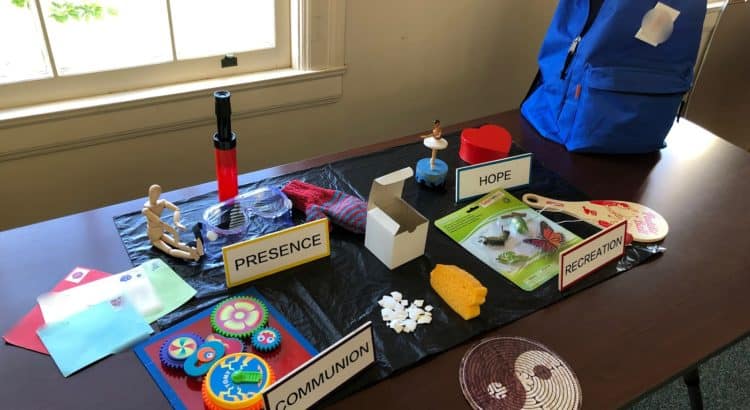When you write your dissertation as a podcast, there isn’t a great way to do footnotes.
I do have some footnotes in my manuscript, at my committee’s suggestion. But I didn’t make any effort to register them in the audio episodes.
Basically, I decided people who would care about footnotes would be willing to do the extra work to track them down via links on the show’s website and investigate without further scaffolding from me. Being more proactive on my part didn’t feel worth the distraction to listeners who, understandably, don’t really care about these extras.
That’s how I handled citations as well.
I do admire shows that find creative ways to mark that a citation has just passed by in the voiceover. The show My Gothic Dissertation, the first dissertation podcast, uses one of those bells you find on desks for when attendants step away. It’s a clever, effective, and maybe necessary device in a humanities dissertation.
Similarly, at least one audiobook of David Foster Wallace’s writing—famously reliant on footnotes—inserts the “text” of footnotes directly with a temporary audio effect to mark the shift.
Anyway, I decided there were plenty of audio and cognitive layers present in my show already. I didn’t want to introduce another.
Still, the function of a footnote—to stick a little text off in a corner somewhere, where it doesn’t disrupt the flow of the main narrative—is incredibly useful. Maybe especially for people who like to qualify, complicate, and otherwise unpack what they’re saying/writing as they say/write it.
At a larger scale, that feels similar to what a bonus episode is all about too. Because Becoming Tapestry is an ethnographic project, I work on the assumption that my primary job is to immerse you in the “spaces” (that is, the sites and relationships) of the work.
This desire tended to lead me to say to myself “Add a little more tape. Just a little more. That last thing they said was so interesting! That introductory comment provides helpful context! I love the sound of so-and-so’s voice in that redundant sentence!”
Of course, the opposite usually needs to happen. The bulk of my editing energy was spent making cuts. And more cuts. And more cuts.
So it was incredibly useful to be able to say, in effect, “I’m going to play you a tiny bit of tape here, and if you’re interested in a full immersion, check out the bonus episode.” Which is what I do in Act 2 of the opening chapter.
And now that first bonus episode is available in your podcast feed. It’s the complete audio of Hannah introducing the guiding principles of Tapestry at a monthly mentor training.
There’s no better scene to immerse you in, because it’s representative of the moment when I realized I truly could write a religious education dissertation about an organization that isn’t traditionally religious.
So here’s a little bit of Godly Play, remixed with practices of organizational storytelling. The photo at the top of this post contains all the items Hannah speaks about.
With the introductory comments from me, it’s about 18 minutes. And it’s a great way to get to know my research partners.
Enjoy!
